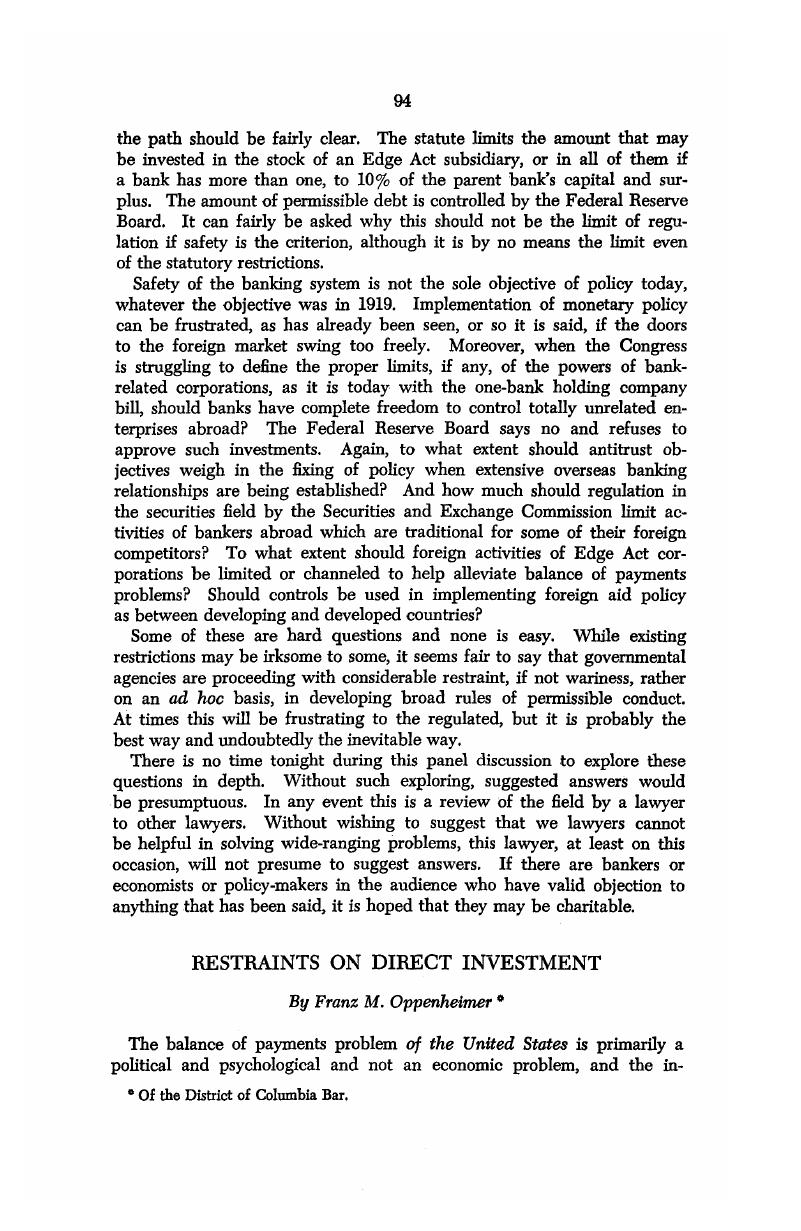No CrossRef data available.
Article contents
Restraints on Direct Investment
Published online by Cambridge University Press: 28 March 2017
Abstract

- Type
- Panel: The United Nations System and Financing Transnational Investment
- Information
- Copyright
- Copyright © American Society of International Law 1970
References
1 Source: Economic Report of the President, Feb., 1970, Table 15 on p. 127.
2 Ibid.
3 In the period 1958-1967 consumer prices increased 15.5% in the United States as compared to 23.4% in West Germany, 28.6% in Switzerland, 34% in The Nether lands, 39% in Sweden, 39.6% in France and 55% in Japan. Source: U. S. Bureau of Labor Statistics, reprinted in The New York Times Encyclopedic Alamac, 1970, p. 423.
4 Since the rate of interest that could be earned on Eurodollar deposits was higher than that permitted for dollar deposits in the United States, U. S. residents shifted deposits to the Eurodollar market from which U. S. banks, usually through their foreign branches, borrowed it back. See “The U. S. Balance of Payments: Fourth Quarter and Year 1969,” in 50 Survey of Current Business No. 3 (March, 1970), p. 27.
While the balance measured on the official reserve transaction basis showed a surplus of $2.7 billion in 1969, a deficit of at least $3 billion is widely forecast for 1970, see New York Times, April 13, 1970, and April 24, 1970. The well-known shortcomings of all these measurements do not, in my opinion, affect the nature of the problem.
5 Of this total of $8 billion, $4.75 billion are in the form of convertible or straight bonds with a maturity of seven years or more and the remaining $3.25 billion comprise all other forms of indebtedness, including short and medium-term bank loans, revolving credits and bonds with a term of less than seven years.
6 Technical and Policy Problems under the Foreign Direct Investment Regulations. A Report of the Committee on Foreign Investments, Section of International and Comparative Law, A.B.A., August, 1969, p. 7.
7 Ibid., App. A-2.
8 Note that under the Articles of Agreement of the International Monetary Fund restrictions on capital transfers are not only permitted under Art. VI, Sec. 3, but may become mandatory on the United States: “Use of the Funds resources for capital transfers.—(a) A member may not make net use of the Fund’s resources to meet a large or sustained outflow of capital, and the Fund may request a member to exercise controls to prevent such use of the resources of the Fund. If, after receiving such a request, a member fails to exercise appropriate controls, the Fund may declare the member ineligible to use the resources of the Fund.” Article VI, Sec. 1.


